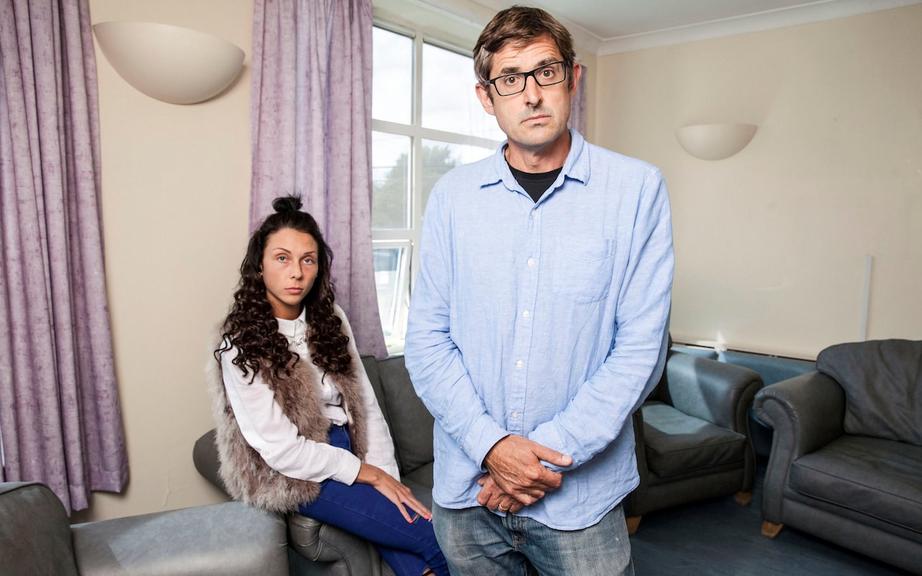Louis Theroux: Talking To Anorexia was important and humane – review
More than once during Louis Theroux: Talking To Anorexia (BBC Two), the deadpan documentarian appeared to have a speck in his eye. After gripping, gruelling investigations into Scientology and America's opiate epidemic, Theroux had returned to the UK to talk to people with life-threatening eating disorders. He didn't try to tack on an upbeat conclusion to these devastating stories.
Theroux met Janet, 63, whose anorexia had wrecked her personal relationships and left her unable to live a normal life. Lunch was a sliver of cracker; on the first of every month she would enjoy a treat of a chocolate. When Theroux suggested she break her routine to have a chocolate with him, she reacted as if he'd asked her to lick something off his boot.
Janet's self-diagnosis was that she wished to remain a child and that anorexia was her way of bricking off the world of grown-up responsibility. Also dealing with deep-set traumas was Ifzana (23), in a residential clinic having come close to inducing a heart-attack by failing to eat properly. Terror of weight gain led her to stand at every opportunity, in the hope of expending additional energy.

Louis Theroux with Rosie in Louis Theroux: Talking To Anorexia
A more prurient filmmaker might have pushed for further details regarding the bullying she'd experienced growing up and the arranged marriage she had rejected. Instead, Theroux sat silently next to her on a bench. "Have you got the sniffles," he wondered as she tried not to break down. For a moment he seemed on the brink of sniffling himself.
Happy endings were in short supply. The outlook felt particularly ominous for Jess, 27. She did 2,000 exercise jumps a day to keep calories at bay. “It’s not about being attractive," she said. “The media portray this image that the ideal size is a size zero but it’s not about that at all. It’s partly a self-punishment thing and thinking that I don’t deserve to eat.”
The future was brighter for Rosie who had temporarily lost her sight and hearing after embarking on a crash starvation regime the previous October. There was tension with her parents, with Rosie unloading in front of the cameras at her mother over what she regarded as a lack of emotional support.
Still, her weight was up. By contrast with the other women, Rosie seemed determine to fight a malaise that the programme presented almost as a demonic presence in the lives of sufferers. "It intertwines itself with positive qualities like conscientiousness and self-discipline and makes them poisonous," said Theroux.
Theroux's style remains controversial, with some maddened by his tendency to stand back and waggle his brows in low key perturbation. Here, empathy and the ability to simply shut up as required were exactly what was needed to win the confidence of the interviewees.
Eating disorders afflict one in 250 women in the UK at some point in their lives and are also on the rise among men. In that context, Talking To Anorexia was an important and humane exploration of a condition which, despite its pervasiveness, is dangerously misunderstood.

